The news that Saudi activist Loujain al-Hathloul was released from prison (although she is still not free to travel) is a sign outsider pressure on the kingdom can have positive results. The Biden administration has also wisely called for an end to the Saudi-led war in Yemen and frozen some arms deals. It should continue to push for the liberation of other human rights activists being held on spurious charges, in addition to U.S. citizens detained by the kingdom.
The international community should now take up another cause and demand the release from prison of former Crown Prince Mohammed bin Nayef, who is being held not because of any crime he committed but because he presents a problem for the current crown prince, Mohammed bin Salman. Mohammed bin Nayef saved the lives of dozens if not hundreds of Americans and defeated al-Qaida in its birthplace. For Washington to press the Saudi leadership on his case would be a perhaps unusual move, but it should be an urgent task, as his is a special case given his considerable contributions to American security. Moreover, his life is very much in danger.
MBN’s record
Mohammed bin Nayef, known as MBN, is the son of the kingdom’s longest serving minister of the interior, Prince Nayef bin Abdul-Aziz. He was educated in Oregon before training with the FBI and Scotland Yard. He gradually assumed his father’s position. Unlike his father, who was very skeptical of — if not hostile towards — Americans, MBN is the most pro-American prince in the family and by far the most competent, especially in counterterrorism.
I first met him when I was special assistant for Near East and South Asia affairs to President Bill Clinton in the National Security Council. I accompanied Vice President Al Gore to the kingdom during a tour we took through the Middle East in May 1998. We met with both father Nayef and son MBN during our meetings in Riyadh. Only afterward did we learn that the interior ministry had disrupted a plot by al-Qaida to attack the United States consulate in Jeddah while the vice president was there in the consulate preparing to meet with then-Crown Prince Abdullah.

It was after 9/11 and the invasion of Iraq that Osama bin Laden called for an uprising in his native country against the House of Saud, and blamed America for supporting it. The first major attack in the kingdom came on May 12, 2003, at a compound in Riyadh that housed foreign military experts working for the Saudi armed forces. Over a dozen al-Qaida terrorists attacked the compound with car bombs and small arms. At least eight Americans, two Australians, and several other Westerners were killed, along with Saudi security guards. It was the first volley in what became a campaign of terror against foreign workers in the kingdom and their Saudi hosts.
The then-Director of the Central Intelligence Agency George Tenet immediately flew to Riyadh to coordinate the battle against al-Qaida. Tenet regarded MBN as the CIA’s closest partner in fighting al-Qaida and the key to defeating the threat it posed to the House of Saud between 2003 and 2006. Nayef was “my most important interlocutor,” he wrote. “A relatively young man, he is someone in whom we developed a great deal of trust and respect.” It was during that period that MBN came into his own.
It was the longest sustained campaign of violent unrest Saudi Arabia had endured in over 50 years.
For three years, the kingdom was a battlefield as al-Qaida attacked targets that included even the interior ministry’s own headquarters in Riyadh. Other compounds for foreign nationals were attacked and an American was kidnapped and then beheaded. Shootouts between al-Qaida terrorists and the police took place in virtually every major Saudi city and many towns. More attacks followed on foreign targets, including a major assault on the United States consulate in Jeddah on December 6, 2004, in which a young female American diplomat was almost captured by the terrorists. Hundreds died and many more were wounded during these battles. It was the longest sustained campaign of violent unrest Saudi Arabia had endured in over 50 years, and the most serious internal challenge to the House of Saud since the establishment of the modern state in 1902. Before it was over, the war would cost the government well over $30 billion.
Even after the war inside the kingdom was over, the prince continued to help fight the terrorist threat to the West — helping to foil more than one plot against the U.S. When al-Qaida planted bombs on UPS and FedEx planes headed from Yemen to Chicago on the eve of the 2010 U.S. congressional elections, MBN called the White House and gave President Obama’s terrorism advisor, John Brennan, the tracking numbers for the deadly containers. The planes were then detained at stopovers in Dubai and East Midland in the United Kingdom and the bombs were removed.
In addition to his international reputation as a resourceful spymaster, MBN is a hero in his own country as the result of an incident in which he nearly lost his life in 2009. He agreed to meet Abdallah Asiri, a Yemeni al-Qaida terrorist, who said he would turn himself in if he could surrender directly to the Saudi deputy minister of the interior. Asiri promised that if he could meet the minister face-to-face, he would then be able to convince his comrades — including his own brother, Ibrahim Asiri, al-Qaida’s premier bomb-maker, who built the bombs that were on the planes to Detroit and Chicago — to surrender as well. When the meeting took place on August 27, 2009, Asiri triggered a bomb, blowing himself up and wounding the prince. Hours later, MBN appeared on Saudi television to tell the story to the kingdom. He did not reveal the extent of his injuries, which led to a lifelong need for pain killers. It was one of at least four attempts on the prince’s life by al-Qaida.
He is probably the most successful intelligence officer in the Arab world. Leon Panetta, another former CIA director, has called him the “smartest and most accomplished of his generation.” His agents captured the Saudi mastermind of the 1996 attack on U.S. military barracks in Khobar, Saudi Arabia, that killed 19 American service members. Iran was behind the plot. Then-Director of the CIA Mike Pompeo gave MBN a medal in 2017 for his work saving Americans. He is also the recipient of the French Legion d’Honneur.
Fall from grace
In April 2016, King Salman promoted MBN to be his crown prince, the first of his generation to ascend to the top level of the royal family. With no explanation, he was removed from the position in June 2017 and replaced by the king’s son Mohammed bin Salman — who would become the architect of the disastrous war in Yemen and the murder of Jamal Khashoggi.
Just a year ago, MBN was arrested on charges of treason. He has not been seen since and is held incommunicado. He apparently has not been given access to medical care or medicine. His life may well be in danger. Human Rights Watch has said his life is threatened.
He has not faced any judicial process that we know of. The charge of treason is absurd. He is in prison because he is the symbol of a viable, competent alternative to the reckless and dangerous crown prince. Mohammed bin Salman wants to eliminate the leading candidate for leading Saudi Arabia away from its current perilous course and back to being a responsible partner. The Biden team, especially its new intelligence leadership, should press for MBN’s freedom. We owe him as much.
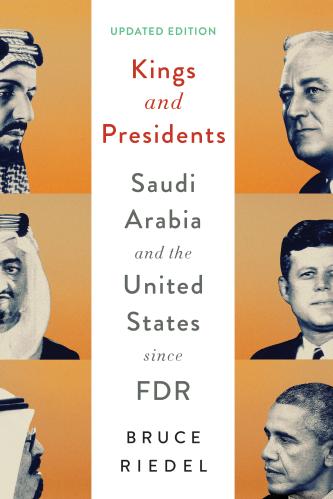
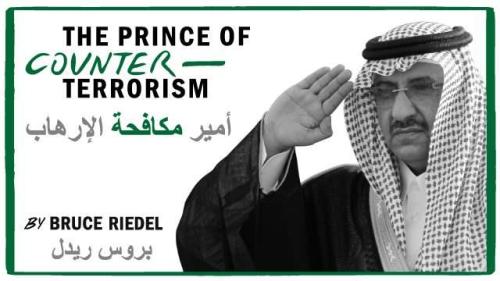

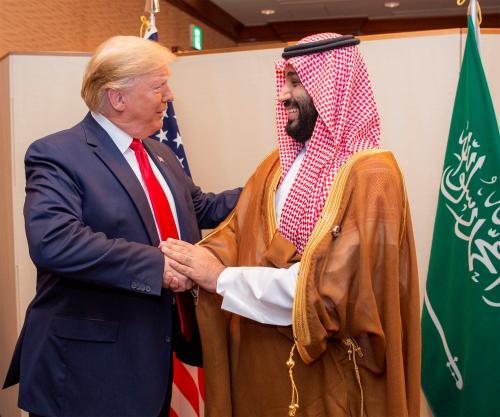


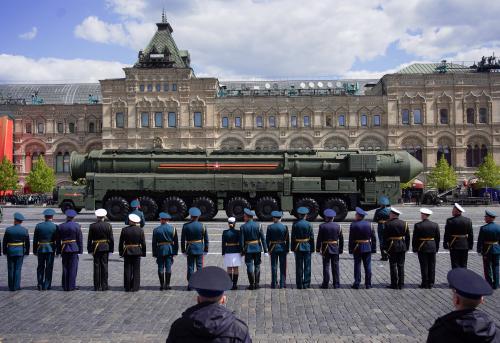
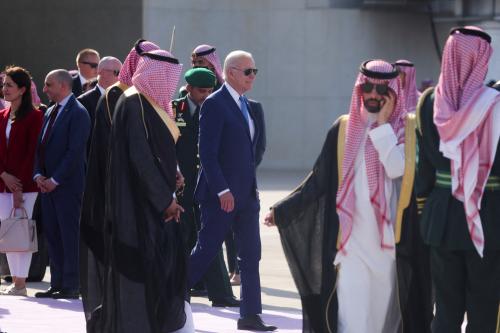
Commentary
The case of Saudi Arabia’s Mohammed bin Nayef
February 12, 2021